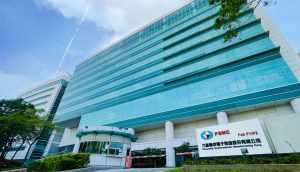Popular Keywords
- About Us
-
Research Report
Research Directory
Semiconductors
LED
Consumer Electronics
Emerging Technologies
- Selected Topics
- Membership
- Price Trends
- Press Center
- News
- Events
- Contact Us
News

According to a report from Liberty Times, citing the Reuters, India’s Tata Electronics has agreed to acquire a majority stake in the only iPhone factory owned by Taiwanese contract manufacturer Pegatron in India. The factory will be operated as a joint venture, aiming to strengthen Tata’s pos...
News

According to sources cited by Indian media outlet Financial Express, Apple is said to be in talks with Micron, Tata Group, and other Indian chip manufacturers to procure USD 12 billion worth of chips locally for iPhones produced in India. Reportedly, Apple plans to shift 26% of its iPhone product...
News

As various governments actively court semiconductor foundries in Taiwan, PSMC, in partnership with India's Tata Group, held a groundbreaking ceremony for India's first 12-inch fab on March 12th. As per a report from TechNews, PSMC has been collaborating with Japan and India recently to establish a s...
News

According to TechNews, Taiwan's semiconductor foundry, PSMC (Powerchip Semiconductor Manufacturing Corporation) recently announced its collaboration with Tata Electronics in India to establish the country’s first 12-inch wafer fabrication plant in Dholera, Gujarat. In an interview on the 4th, Chai...
News

The semiconductor supply chain is accelerating its globalization strategy. On February 29th, PSMC announced its collaboration with Tata Electronics in India to construct the country's first 12-inch fab in Dholera, Gujarat. The construction of the fab is expected to commence within this year. Acco...